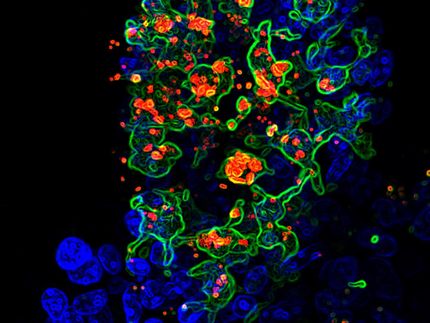The benefits of bacteria for gut health
Advertisement
Scientists from the Emory University School of Medicine in Atlanta, United States have shown that specific gut bacteria are beneficial for maintaining a healthy intestine in the fruit fly Drosophila and mice and also contribute to the overall health of these organisms. The researchers demonstrated that bacteria in the gut, particularly members of the genus Lactobacillus, promote the growth of host epithelial cells and that this is essential for maintaining homeostasis in the intestinal system. The findings, which are published today in The EMBO Journal, could have implications for the treatment of inflammatory bowel disease as well as allergic, metabolic and infectious disorders.
“It is well-known that mammals live in a homeostatic symbiosis with their gut microbiota and that they influence a wide range of physiological processes. However, the molecular mechanisms of the symbiotic cross-talk in the gut are largely unrecognized,” stated Andrew S. Neish, Professor at the Emory University School of Medicine, who led the research. “In our study, we have discovered that Lactobacilli can stimulate reactive oxygen species that have regulatory effects on intestinal stem cells, including the activation of proliferation of these cells.”
Using two different animal models, the researchers showed that the highly conserved underlying mechanism of this symbiotic relationship is the production of reactive oxygen species (ROS), by a class of conserved enzymes called NADPH oxidases or Nox’es. When animal guts were colonized by Lactobacillus, ROS production caused cell growth in intestinal stem cells. In contrast, in germ-free animals ROS production was absent and resulted in suppressed growth of epithelial cells. Lead author Rheinallt M. Jones, commented: “Our data support the concept of commensal bacterial-induced generation of ROS as a transducer of bacterial signals into host cell signaling, thus establishing a mechanism for host/bacterial cross-talk.”
In addition, the study suggests that specific redox-mediated functions may contribute to the identification of further microbes with probiotic potential. The researchers also suggest that the primordial ancestral response to bacteria may well be the generation of ROS for signaling and microbicidal activities.



























































